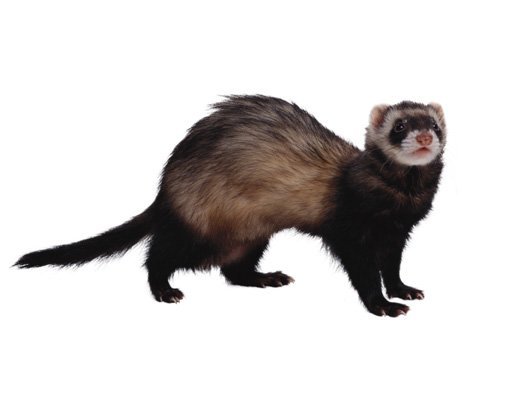
The domestic ferret has increased dramatically in popularity as a pet over the last 20 years. These animals have specialized husbandry (nutrition, vaccination, spaying, neutering, descenting, dentisry..) and handling requirements which we would be happy to discuss. They are often presented to us with a variety of diseases, many of which are similar to those seen in the dog and cat such as distemper, intestinal foreign bodies, back problems, bladder stones, lymphosarcoma, and heart disease. All ferrets should receive a physical examination, vaccines and a heartworm test on an annual basis. Spaying is required for all non-breeding females to prevent persistent estrus and hyperestrogenism. Castration is recommended to decrease odour and aggressiveness in males. Ferrets have a high incidence of dental disease if fed moist food. Various forms of dental care may be recommended by the veterinarian.At 5 years of age and older, semi-annual examinations and bloodwork are recommended to screen for the most common geriatric diseases.(adrenal tumors, insulinoma..)



